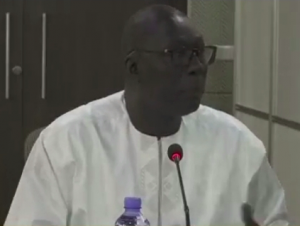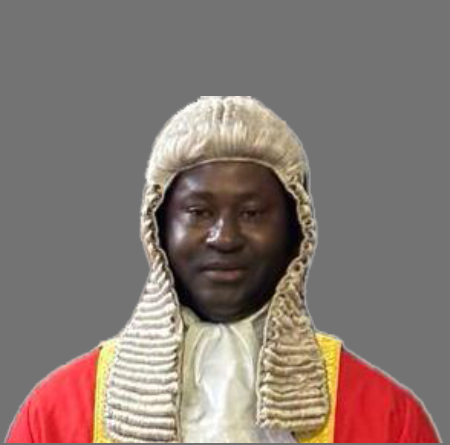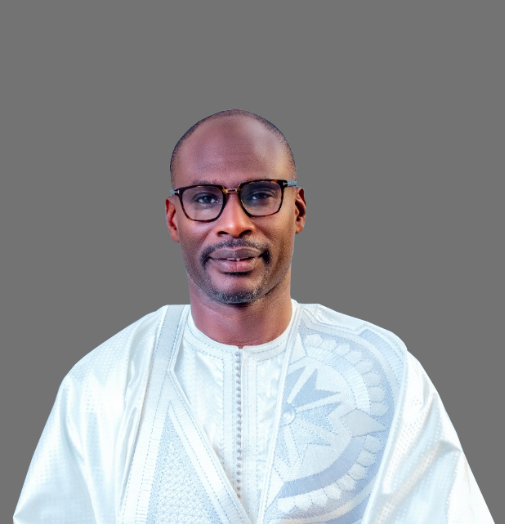 Former Petroleum and Energy Minister, Hon. Abdoulie Jobe, appeared before the National Assembly’s Joint Committee on Finance and Public Accounts (FPAC) and the Public Enterprises Committee to provide testimony regarding an inquiry into 36,953,614 metric tons of petroleum products, valued at $30,000,000.
Former Petroleum and Energy Minister, Hon. Abdoulie Jobe, appeared before the National Assembly’s Joint Committee on Finance and Public Accounts (FPAC) and the Public Enterprises Committee to provide testimony regarding an inquiry into 36,953,614 metric tons of petroleum products, valued at $30,000,000.
Currently serving as the Minister of Tourism, Arts, and Culture, Hon. Jobe clarified several issues surrounding the sale and taxation of petroleum products in The Gambia. He explained that Oil Marketing Companies (OMCs) and international traders do not pay taxes, duties, levies, or VAT on the fuel they sell.
“It is the consumer at the pump station who buys the fuel that pays the tax on the litre of the fuel and the levies as per the price structure determined by the government every month the OMCs merely collects the money and remits it to GRA,” he said.
He explained that the transactions at the border are strictly between the Oil Marketing Companies (OMCs) and the traders, describing it as a purely business relationship.
He further informed the committee that before the fuel arrives at the depot, payment is made directly into the trader’s account, specifically the one they are working with.
Hon. Kebba Lang Fofana, who served as the Co-Chair of the committee, questioned the minister about his policy communication issued on October 30, 2023.Hon. Fofana then referenced the third and fourth paragraphs of the policy, quoting: “it is important to understand that international traders or OMCs and depositors of petroleum products at the storage depot facilitate the availability of the product to license operators in the country to have access to the product. In this regard, the project owner will stock at the Depot can choose to instruct a buy to pay an invoice into a foreign Bank as per the agreed commercial terms,”Hon. Fofana informed the minister that the committee had received a submission from the former Permanent Secretary of the Ministry of Petroleum. In that submission, it was clearly stated that certain provisions should not involve law enforcement, as they pertain strictly to the relationship between the customer and the buyer.
He then asked the minister what specific issue his ministry was aiming to address with Clause Five of the policy document.
In response, the minister explained that the government’s role was to provide clarity and prevent potential shortages.
“Now international traders can bring the product. It is their prerogative to charge anybody in whatever currency because at the free zone the trader does not need to bring product in this country as an OMC, even GNPC who buy product from a trader which is not operating in this country called Sahara. GNPC has to pay open and LC before the product comes into this country, and it’s paid in US dollars or Euros as determined by the trader,”he told the committee,”he said.Hon. Fofana requested the minister to brief the committee on the policy document, which was presented on July 3, 2023.
In response, the minister explained that the policy aims to facilitate access to petroleum products stored at the depot. This is to ensure that depot management provides information about product availability to licensed parties and foreign nationals.
He further clarified that international traders are not required to hold a license to store products at the terminal, but they must comply with petroleum product regulations, particularly regarding quality standards.Hon. Fofana then asked the minister to specify when the policy was discussed at the cabinet level.
“I think you have to ask the cabinet secretary to give you the specific date. I cannot, and I will not, provide you with the date that I submitted issues to Cabinet as an AOB,” he said.
Hon. Fofana informed the Minister that the committee would rely on the information provided by him. If the committee wished to verify that information, they would approach the Cabinet Secretary. However, at present, their investigation does not require them to seek input from the Cabinet Secretary.Hon. Fofana then passed the floor to his Co-Chair, Hon. Bilay G. Tunkara, to obtain a clear response from the former Petroleum Minister.
Following a heated exchange, the Minister eventually agreed to provide the committee with the specific date, month, and year when the policy was discussed in cabinet, confirming its approval for October 31st, 2024.



